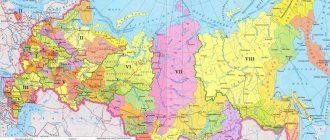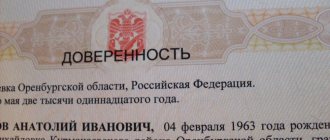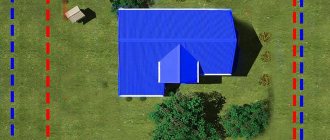Regulation of the procedure for the alienation of land plots in the Russian Federation is carried out by Land and Civil legislation. The conditions, nuances and procedure for alienation are described in Article 44, Article 52 of the Land Code of the Russian Federation and Article 27 of the Civil Code of the Russian Federation. The transaction is executed in accordance with the general requirements for concluding civil law agreements.
Dear readers! Our articles talk about typical ways to resolve legal issues, but each case is unique. If you want to find out how to solve your specific problem, please contact the online consultant form on the right. It's fast and free! Or call us at 8(800)-350-30-02 (the call is free for all regions of Russia)!
Transfer of land
The main provisions for regulating land turnover are established, and the features are established. There are several forms of ownership:
- state - lands that are not owned by citizens or the municipality;
- municipal - plots given to municipalities during the delimitation of state property and legally recognized as such;
- private – agricultural plots and lands of settlements.
In relation to some lands of state and municipal property, restrictions on turnover have been established - the areas listed in Art. 27 of the Land Code of the Russian Federation, it cannot be transferred into ownership and privatized.
Territories that are privately owned, like other property, are subject to transfer by inheritance, gift, sale, or transferred in another way. This is called land alienation:
- in a paid or gratuitous form;
- voluntary or forced.
Depending on the scope of rights transferred when concluding transactions, the latter can be divided into 2 groups:
- purchase and sale, exchange, donation, redemption of land. It is assumed that all rights to ownership, use and disposal will be transferred in accordance with Art. 207 Civil Code of the Russian Federation;
- lease, transfer by power of attorney or trust management. Only a temporary transfer of the right to use is carried out, therefore such transactions are not alienation.
The legal aspects of alienation are more fully disclosed in the article “General characteristics of transactions with land plots.”
Any disposal of property is possible only if the plots have undergone the registration of ownership rights and are registered in the cadastral register in accordance with.
Only the availability of information about a land plot displaying the main characteristics in Rosreestr is confirmation of the legal rights to own it. Compliance with this condition makes it possible to fully own and dispose of the plot of land in accordance with civil law, which defines what alienation of a land plot is.
For citizens, proof of ownership and confirmation of registration in the Register is a cadastral passport.
All terms of the transaction are stipulated in the contract, which is drawn up in 3 copies: for the seller, the buyer and the state registration authority.
If the plot belongs to a minor citizen or is in common ownership, notarization is required.
The fact of transfer of ownership upon alienation of land is certified by state registration in accordance with the registration of real estate.”
Criteria for conducting
The main criteria that should be observed during alienation are spelled out in Chapter 52 of the Land Code of the Russian Federation. Main criteria:
- all agreements on the basis of which alienation is carried out are the desire of the owner, accepted without outside pressure;
- the procedure can be carried out in relation to those areas that have undergone land surveying and are registered with Rosreestr;
- the transaction will be recognized as legal and valid if the owner or his official representative takes part in it;
- territory that is not considered private property may be claimed by the state or municipality;
- plots that belong to a protected area, where power lines and protected objects are located cannot be alienated;
- citizens who do not carry out officially registered farming activities do not have the right to alienate land intended for these purposes;
- The right to own alienated territory is enjoyed only by persons with citizenship of the Russian Federation, or legal entities, companies and organizations in which the share of foreign ownership does not exceed 50%.
How alienation can occur
According to the Land Code of the Russian Federation, citizens can be provided with land plots that are state or municipal property. The basis for challenge, in accordance with Art. 39.1 of the Land Code of the Russian Federation, serves:
- decision of the executive authority,
- free use agreement;
- purchase and sale agreement (trading, auctions, competitions).
The nuances of transferring federal and municipal land plots to citizens are discussed in the material “Land Allocation.”
The owner has the right to own, use and dispose of the plot at his own discretion, including alienation of the land. The transfer of rights to it is classified as follows:
- voluntary transfer: purchase and sale, barter, donation;
- refusal of the owner of a legal right (rent);
- forced seizure of a land plot based on a court decision on termination of ownership rights.
Any alienation must take place in accordance with the law, otherwise the acquisition of land will be considered unauthorized seizure or unlawful transfer of the site.
Occupying an allotment without legal grounds is an administrative offense for which liability is provided under Art. 7.1.
Voluntary alienation of property
The alienation of land plots at the will of the owner is regulated by the norms of civil legislation on transactions and contracts. Typically, in this two-way transaction there is a transferor and a receiver.
Ownership rights are transferred after concluding an agreement and registering changes in the Russian Register, sometimes with the consent of third parties. For example:
- alienation of a land plot in shared ownership requires the consent of all owners;
- alienation of agricultural land is possible only if municipal bodies waive the pre-emptive right to purchase;
- Alienation of an allotment acquired during marriage occurs with the notarized consent of the second spouse.
Participants in the transaction can be individuals and legal entities, the state and municipal authorities.
Forced alienation of land
Methods of alienation of private property are conditionally divided into 2 groups:
- expropriation, which is based on generally beneficial goals;
- confiscation is a sanction for an offense.
Confiscation of a privately owned land plot is possible only by court decision in cases where the plot is not used for its intended purpose or is not used at all. In some cases, forced seizure of plots without compensation for the value of real estate is assumed:
- foreclosure on property based on the owner’s obligations;
- reclaiming property from someone else's illegal possession.
During expropriation, it is possible to seize land plots for the needs of the state or municipality in the national interests, for public benefit or security. The owner is compensated.
Let's sum it up
Alienation of a plot of land is a procedure for transferring ownership of a plot of land to another person. It can be implemented both voluntarily and compulsorily; both paid and gratuitous transfer of land is also possible. After the procedure, the previous owner completely loses ownership, and the new owner acquires it.
The state has established a number of requirements for the alienation of real estate. This procedure requires registration through Rosreestr, otherwise the old owner will not lose his right, and the new owner will not receive it. Other restrictions apply to each alienation option separately.
Under what conditions can an object be alienated?
Depending on the method of transfer of ownership, a certain procedure is established. For the voluntary alienation of a land plot, the following algorithm exists:
- Determination of the cost of the plot by agreement of the parties or based on the conclusion of an expert organization.
- Signing the purchase and sale agreement.
- Registration of property rights in Rosreestr.
The procedure for the purchase and sale of agricultural land is established by Art. 8 . The owner is obliged to notify the municipality in writing and against receipt of his intention to sell the plot, indicate the price and other terms of the transaction. The municipality has the right of first refusal at the price announced by the seller.
Agricultural lands cannot be alienated if local governments have not refused to acquire them and the seller has not received notice of the intention to buy the plot within 30 days.
The main condition for making transactions with land is its negotiability. Restrictions on transfer are established by the RF Land Code for:
- state reserves and national parks;
- areas included in the forest fund lands;
- specially protected natural areas;
- plots located next to water bodies of state or municipal property.
If these restrictions do not apply to the alienated land plot, transfer of ownership is possible under general conditions.
When a deal can't happen
Alienation of a municipal land plot (or state-owned) cannot be carried out if:
- it belongs to the territory of national parks and reserves;
- the plot belongs to the forest fund;
- or to natural areas that are specially protected.
- within the boundaries of the site there are water bodies belonging to federal or regional authorities.
If the above restrictions are not imposed on the land, then the alienation is carried out in the general regime.
In what order is alienation performed?
The only transaction with land plots that is concluded orally is a lease for up to 1 year. Therefore, the first stage of alienation is the conclusion of a written agreement indicating:
- parties and the subject of the contract with exact characteristics;
- the absence of a ban on transactions and encumbrances: pledges, leases, easements;
- contract prices and payment method;
- other obligations of the parties.
The next stage is registration of the transfer of ownership. In fact, the alienation of a land plot by its owner to other persons is carried out only after registration in the Unified State Register of Rights to Real Estate.
Emerging nuances
During this transaction, some nuances may arise:
- Firstly, as a result of alienation, the owner has a ban on any actions related to this site.
- Secondly, the owner can no longer derive any benefits from the land.
Thirdly, the owner no longer has any responsibilities associated with ownership of the plot, namely:
- no need to pay taxes;
- no need to carry out technical measures;
- there are no more encumbrances on the land.
Partial alienation of allotment
There are often cases when a land plot has several owners and one of them decides to sell, donate or exchange his share. The general principle of property rights does not prohibit them from disposing of their part of the property. But to do this, it is necessary to notify the other owners of the intention to carry out shared alienation of a privately owned land plot.
The seller of the share is obliged to send a notice in writing, in accordance with Art. 250 of the Civil Code of the Russian Federation.
Since the co-owners have the right of first refusal, third parties will be able to buy part of the plot only if none of them responds to this offer within 1 month.
If the plot can be divided, the division is carried out by agreement of the parties or by court decision (Article 252 of the Civil Code of the Russian Federation). In this case, common shared ownership is terminated, and each co-owner can register ownership of a separate plot. After this, the property is disposed of in the general manner.
Alienation of the share of agricultural assets is carried out in accordance with Art. 12 of the Law of the Russian Federation of July 24, 2002 No. 101-FZ and the norms of civil legislation. Without allocating an allotment and taking into account the pre-emptive right of acquisition by co-owners, a participant in shared ownership has the right to:
- sell, donate or bequeath your share;
- relinquish ownership rights;
- contribute the plot to the authorized capital of the agricultural organization;
- transfer the plot to trust management.
The disposal of an agricultural land plot, which is in shared ownership of more than 5 people, occurs on the basis of a decision of the owners adopted at a general meeting.
Without land surveying
If the land surveying procedure was not carried out, then from 2021 it has become impossible to alienate a land plot. This provision was introduced into the law “On the State Real Estate Cadastre” (Law on Amendments No. 447-FZ). This procedure applies to lands intended for gardening, subsidiary and dacha farming, individual housing construction. Thus, in order to donate, exchange, mortgage or sell a plot of land, it is necessary to carry out a land surveying procedure. It must be understood that the presence of documents confirming land ownership does not cancel this obligation. Only when the allotment zone is officially registered does this become possible.
Seizure of a land plot
The concept of requisition of property is established in Art. 51 Land Code of the Russian Federation. In case of emergency and in order to protect the vital interests of citizens, the plot may be withdrawn. The owner of such a plot is compensated for losses and issued a requisition document.
If, after the cessation of circumstances, it is impossible to return the plot, the owner is provided with an equivalent plot or the market value of the requisitioned land is paid.
Requisition can be used not only for owners, but also for permanent use, inherited possession or gratuitous fixed-term use.
The legal aspects of the seizure of land plots are discussed in the article “Requisition of a land plot”.
Regulatory regulation
Requirements for transactions and the procedure for their implementation are specified in the Civil Code and the Land Code. The first determines the general terms of transactions, the second - the specifics of their execution with lands.
The law on the turnover of agricultural land stands apart. It describes the procedure for conducting transactions with lands allocated for agriculture.
The Law on Registration of Rights to Real Estate is technical in nature and regulates the process of rights to real estate. According to the provisions of the Civil Code, ownership rights arise from the moment of registration of rights after signing the contract.
A significant part of judicial practice is devoted to land alienation. In particular, during the existence of the Supreme Arbitration Court, recommendations were issued to courts on the application of the provisions of the land and civil codes when considering disputes about the legality of transactions.
In addition, a whole range of by-laws issued in pursuance of the laws has been adopted. They, one way or another, relate to the procedure for conducting transactions.
Consequences of Chernobyl
The disaster also affected the Russian Federation. Part of its territory was contaminated. What are exclusion lands? It is forbidden to settle in the exclusion zone; any economic activity is virtually frozen there. The use of natural resources in that territory is limited or prohibited. In Russia, the exclusion zone includes 4 villages located in the Bryansk region.
The citizens who lived there before the disaster were evicted and were given housing and a place to work. At the same time, they are now entitled to a number of benefits.











